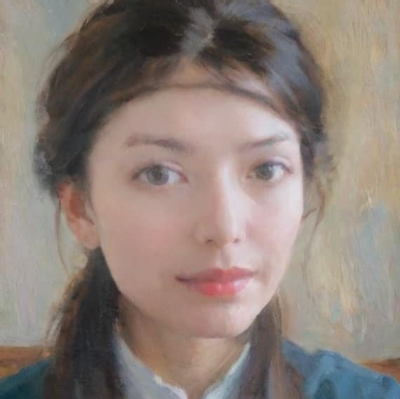莫倫比克(Molenbeek),位於比利時布魯塞爾,人口約十萬,以土耳其與摩洛哥移民為主要人口。但因2015-16年間,多件恐怖分子相關案件,包括:
- 2015/1:警方摧毀一伊斯蘭國附屬小組
- 2015/8:火車襲擊事件
- 2015/11:巴黎槍擊案
- 2016/3:布魯塞爾連環爆炸案
以上事件的主要策畫者及參與行動的人都出身自莫倫比克,或曾居住過莫倫比克,莫倫比克從此被貼上"恐怖分子溫床"的標籤。
這些恐攻事件(尤其是2016布魯塞爾機場及地鐵爆炸案)發生後,當時的比利時總理Charles Michel決定要"壓制"這個地區,他說道:
“We've tried prevention. Now we'll have to get repressive. It's been a form of laisser faire and laxity. Now we're paying the bill.”
而所謂"repressive"的策略,便是要"清理"(clean up)莫倫比克,由警方實行"house-to-house"策略,逐家搜查當地住家。

但莫倫比克當地人民對政府的言論及採取的措施感到不滿,也認為政府並未想要根本地解決問題。
“If you say 'clean-up' to people who already don't trust you, what will their reaction be? ”
“What is lacking for now is a really good prevention programme where people who might understand the problem are invited for discussions - this is completely lacking.”
(Johan Leman, 一個當地居民,她的兒子加入聖戰組織,死在敘利亞。)
關於恐攻的起因,有些人將恐攻的發生歸咎於對難民、移民的接收。
"Brussels was once the top city in Belgium and now it's this, this is clearly because of immigration."
"No more immigrant!!" (以上摘自多則youtube評論)
有人認為,莫倫比克一直有嚴重的社會及宗教問題,治安差、父母對兒女的教育問題視而不見。
"There is a big problem with the social and religious environement. A lot of parents aren't there to educate their children. The only truth is a identity problem. They have to change, that's the only solution."
"Those 'innocent' kids from Molenbeek are far from innocent and have problems with authority every single day. They have parents who doesn't care about their kids. "
"...15 years ago I use to go to a School in Molenbeek .. ....and it was already a no go Zone.... " (以上摘自多則youtube評論)
有些人指責莫倫比克人不尊重比利時人及比利時文化,是一個"身分認同"問題,或是"伊斯蘭作為一個意識形態"的問題,並說他們需要改變,也指責當局始終容忍莫倫比克的居民,沒有"監督"他們,間接導致了恐攻發生。
"The only truth is a identity problem. They have to change, that's the only solution."
"They grow up on the streets without respect and education towards the belgian people and culture."
"The thing is you can't just put a group of immigrants together and let them do whatever really without any real supervision for 50 years and expect them to be fine. Yes Islam as a as an ideology is to blame but this could have easily been avoided." (以上摘自多則youtube評論)
也有人認為,政府和摩洛哥移民後代才是問題。
"I am from Brussels, and I can assure you that our government allowed this neighborhood to exist,,...the problems always come from people from Morocco...people need to know that the problems does not come from Islam or migrants..... but from our government and Moroccan borne in Eu" (摘自一則youtube評論)
那麼,問題到底出在哪?

據國際極端化和政治暴力研究中心(International Centre for the Study of Radicalisation and Political Violence)統計,比利時向中東國家輸出的戰士,在西歐國家中,佔國家總人口數的的比例是最高的,且是次高的法國的兩倍以上。
這讓人不禁疑惑,作為"歐洲十字路口"的比利時以及莫倫比克,究竟存在什麼問題,使當地年輕人,成為了聖戰組織的目標?
一、經濟因素?

布魯塞爾分成19個區域,其中,莫倫比克則是失業率最高的區域,平均失業率有30.9%,年輕人的失業率更是高達40%。
莫倫比克也是布魯塞爾內,第三貧窮的區域。每戶家庭平均年收入為17,303歐元。
當地的青少年輟學率也很高,移民第二代的輟學率,男性是21%,女性是15%。
而貧窮、高失業率、高輟學率,造成了當地高犯罪率,偷竊、搶劫、毒品問題,在莫倫比克層出不窮,成為了媒體、大眾、警方口中的"no-go zone"。
二、"a system of apartheid"--比利時族群融合困境
"You really have ghettos. And what is more important, and more dangerous, is not that people aren't living together - it's the mental ghetto."
比利時當地也可以分為使用法語的、南方的瓦龍(Walloon)區及使用荷語的、北方的佛拉芒(Flander)區,這兩個區域的經濟及社會發展不同,但人們對自己居住的區域有強烈的認同,在歷史上有許多族群對立的現象。一名在警察學校教授跨文化課程的講師表示,至今,比利時當地仍常以南方、北方,劃定誰是"自己人"。
"We always talk about the others in negative terms," he says. "We say: 'We are hard-working Flemish people, and the Walloons are lazy!' We think of 'us and them' - even between Belgians."
而比利時國內將近一半來自摩洛哥、伊拉克、土耳其等的移民或移民後裔,也面臨不為當地所接受的困境,不被認為是"真正的比利時人",即使移民已經在這裡居住了三代之久。
"And in the same way, we think: 'There are white people, the real Belgians - and newcomers.' Even though people from Morocco and Turkey have been here three generations…"
這名講師更認為這是一種種族隔離的系統(a system of apartheid),這系統源自心理,是更危險的:
"You really have ghettos. And what is more important, and more dangerous, is not that people aren't living together - it's the mental ghetto."
這種種族隔離的系統,亦體現在布魯塞爾內。
"總共分成十九小區的布魯塞爾,就像各自獨立互不相碰的小水滴,擁有屬於各自的文化圈,即便絕大部分的人都不是因為歧視而刻意避開彼此,但如果不刻意經營,並不容易有機會接觸彼此。
"從全市平均收入最高的Schuman,到位於西邊收入最低的Molenbeek,在這短短不到兩公里之間的人,可以一輩子都不踏足對方的區域如常生活。"
"在這個表面上看似「多元」的城市,族群間卻有著難以想像的巨大鴻溝。"
(摘自為什麼是比利時?歐洲做錯了什麼?|國際|端傳媒 Initium Media (theinitium.com))

當時的莫倫比克首長Françoise Schepmans自2012年接任管理莫倫比克。她在接受媒體採訪時指出,莫倫比克的高失業率及低教育程度,是它成為一個貧困地區的主因,但是"貧窮不是激進主義的藉口"(Poverty is no excuse for radicalism),尤其巴黎槍擊案中與莫倫比克有關聯的兩位嫌犯(Salah Abdeslam和Abdelhamid Abaaoud)是中產階層背景。
但其實,加入聖戰組織的不全是中產階層。
她也指出,莫倫比克中心居民(大多數是摩洛哥移民),一直以來有無法融入社會的問題。
上一任的莫倫比克首長Philippe Moureaux曾管理莫倫比克將近20年,Schepmans說,當時Moureaux認為,莫倫比克是個"社會的、多元文化的實驗室",他以"讓莫倫比克人隨他們所想的過生活"(people in Molenbeek should just live how they want)為方針,管理這個地方。當Schepmans被問到自她接任管理莫倫比克後,有什麼改變時,她表示她將治安擺在第一位,裝設了許多監視器,她也鼓勵莫倫比克人尊重警方。
Moureaux並未提及她針對莫倫比克的貧窮及融入當地社會問題,有採取什麼措施。
"次等公民"
由於莫倫比克的高犯罪率,以及其居住的多是摩洛哥移民,信仰伊斯蘭。在911事件發生後,大眾對莫倫比克更敬而遠之。莫倫比克居民,在生活中,便常常感受與其他區域間的鴻溝,以及其他區域人民對他們的排拒。

一位莫倫比克的穆斯林女性居民,曾因穿著Hijab,被拒絕進入餐廳用餐。
一個穆斯林女性青少年,穿著Hijab到班上課時,被老師要求脫掉Hijab。
"When you're in school, do you feel accepted?"一名記者詢問這個學生。 "I have a lot of problem because I wear jilbab(Islamic dress), they ask me to remove it when I go to school. I don't feel right without it. Why can't I show it? why is religion at war like it?"這個學生回答道。
一個當地青年表示,當其他區域的人看到莫倫比克人時,都會對他們另眼看待。
“That's how we feel…people feel we are 'those people', they say that's 'those people' with their finger pointing us….”
由於高犯罪率,莫倫比克被冠上"no-go zone"的標籤,長期被視為"有問題的區域"。警方也不願涉足這塊區域。因為莫倫比克人不信任警方,也覺得警方不信任他們。但畢竟,在一個將近一半人口是移民及移民後代的國家,卻只有極少數警察是有色人種的狀況下,如何要求莫倫比克信任警方呢?
一個當地諮詢員指出了莫倫比克人面臨的問題:
"The people in this neighberhood face a series of difficulties. Job insecurity, socio-economic problems, unemployment and stigmatisation. They have the impression that they've become second-class citizens."
"They don't trust the schools, police and the media. But they also feel that the media don't trust them, the schools don't trust them and society doesn't trust them."
而當這些莫倫比克年輕人在經濟上找不到出路,面對外界的汙名化和排拒時,覺得自己是次等公民,轉而向內尋求認同,而這個對內的身分認同,就是穆斯林:「至少我是個好穆斯林。」
這個當地諮詢員也指出,在911之後,恐伊斯蘭(Islamphobia)的現象開始出現時,伊斯蘭對莫倫比克居民來說不僅是信仰,更是一個身分認同。即使是日常生活中很少實踐伊斯蘭的年輕人,也會聲明自己是穆斯林。
過去曾居住在莫倫比克的一個攝影記者TEUN VOETEN,也發現這個現象。他說,過去莫倫比克的伊斯蘭,是很純潔、無害的那種。但他發現,莫倫比克年輕人對傳統伊斯蘭的認同變得越來越強、排他性越來越高,甚至要求同地區的信仰、政治看法、作息、穿著一樣,形成了一個族群及宗教的,排他的、封閉的聚落。TEUN VOETEN在2014年離開莫倫比克,因為他在街頭上遇到極端分子想招募他加入IS。
當莫倫比克年輕人緊抓住伊斯蘭作為認同,又有伊斯蘭極端主義者在清真寺內、在街頭上招募新血,這些年輕人就極有可能加入聖戰組織。
TEUN VOETEN也說,政府要負起很大的責任。因其對伊斯蘭始終避而不談,且在議會上,當有人指出莫倫比克年輕人的高犯罪率及潛在伊斯蘭激進分子的進入時,提出這些問題的人反被指控是右翼份子。TEUN VOETEN說這是比利時"否認"的文化(the culture of denial)。
恐莫倫比克(Molenbeekphobia)
而現今,在2015-16年間的恐攻事件後,人們對莫倫比克的觀感更差、更加排拒。因許多恐襲事件與莫倫比克有關聯,莫倫比克在媒體的報導中,多被稱為"伊斯蘭極端主義的溫床"(a islamic extremist hotbed)、"聖戰分子的基地"(a jihadist base)、"聖戰分子的孕育地"(a jihadist breeding ground)。
但莫倫比克當地一個創業家表示:
莫倫比克的情況,是被媒體誇大的案例,因為同樣的結構、同樣的政治情況,在德國、英國、法國、荷蘭,在全球都找得到。
在恐攻事件發生後,人們在布魯塞爾市政府前,發起一場反恐怖主義的號召,本來是場以和平為訴求的抗議,卻發生數起人們之間的衝突。
"We are at war!"一個抗議者喊道。



同時,也有人在恐攻發生後,想發起反對恐伊斯蘭(anti-Islamphobia)的遊行時,卻未獲批准。莫倫比克也曾發起當地的馬拉松比賽,但在比賽前,大部分人都取消報名,原因是"那裡太危險了"。
根據比利時防止恐伊斯蘭協會2018年的統計(the Belgian Association for the Prevention of Islamophobia, CCIB),比利時平均每兩天會發生一次反伊斯蘭的攻擊,包括社群媒體上的言語攻擊和肢體攻擊。
關於媒體對莫倫比克的描述,莫倫比克年輕人覺得媒體不斷片面地將莫倫比克描述成聖戰士基地,並對此提出批評。
“If you walk on the street, you’ll see people just like you and me, but the media describe Molenbeek as a jihadi base.”
"Those who want to see the true image should come to us and speak to us to understand and to really see what there is to see."
他們也指出,媒體只播報莫倫比克人和警察衝突的畫面,卻幾乎沒有播報他們參與默哀與紀念恐攻受害者。

居住在布魯塞爾的藝術家Antoine Caramali 針對媒體對莫倫比克的呈現表示反對,在2018年製作了一系列作品Les Spectateurs (The Big Molenbeek Show)。張貼在莫倫比克與其他區域間的運河,以及街道上。
他想藉著這系列作品,將"觀看權"還給莫倫比克人,並反諷媒體自2016年,將莫倫比克妖魔化,供大眾觀看、指責的現象。
"A tribute to this wonderful piece of Brussels (where I live), home of the poor, the artists, the immigrants and the tourists, fertile ground of mixity and culture." 作品介紹末段這麼寫道。

有解方嗎?
莫倫比克青年Ibrahim Ouassari,創立了MolenGeek,一個創業中心,於2016年3月開張,也就是恐攻後不久成立。許多青年人,從高中生到社會人士,在這裡參與程式教育課程,並在日後成功找到工作。

Ouassari表示,莫倫比克青年長由於低教育程度、或者移民、穆斯林身分,甚至只是因為出身地的緣故,找不到工作。尤其莫倫比克穆斯林女性,更是就業市場上弱勢中的弱勢。
Ouassari認為莫倫比克人在上學之後,就會明顯感受到外界對自己的歧視,而很難對未來有信心。但他相信,透過創業育成中心,就可以成為一個助力,幫助莫倫比克人克服在成長過程中所面臨的困難,讓他們成功。成立molengeek後的這些日子以來,他覺得,莫倫比克年輕人其實最需要問自己:我們為什麼不真的認同自己?
Ouassari也希望這裡成為一個莫倫比克人能接觸外界的憑藉,在這裡除了莫倫比克人,也有摩洛哥、墨西哥、美國、瑞典人,能夠互相激盪出不一樣的點子。
在這個創業育成中心中也有個劇場,學生們在這裡將生活中遇上歧視的情節,改編成喜劇。其中一個演員在一次演出邀請了曾經對他說過歧視言論的男性來觀賞,演出完畢後,這個男性向這個演員為他的言論道歉。這個劇場的負責人,沃亨,認為,這些年輕人在家庭中不見得會將生活中遇到的困境說出來,他們需要管道,將自己的想法說出來,從而建立對自己的認同和自信。





















